Author: James Olsen
-
Reading Nephi – 8:9-12
How did Lehi know that the fruit was desirable to make one happy? Usually in dreams we just know things; we know the context or the background that makes the dream sensible. Is that what it was? What about in life? Why do some of us simply know how to be happy and others don’t?…
-
Reading Nephi – 8:1-8
Verse 1: it seems clear that they lived in the Valley for quite some time. Lehi’s dream. This labyrinth makes the whole book worthwhile. I too have had dreams that make me deeply question the future and my relationships, that do not simply manifest but engender worry and joy. But here we see a dream…
-
Reading Nephi – 7:6-22
Here again we get a narrative, and in the perceptible foil of a competitor narrative. Once again, Nephi works hard to discredit Laman & Lemuel, and here we can see clearly what their major point is: returning to Jerusalem. It’s easy to imagine a New World experience decades into the future, in the wake of…
-
My petition for a bill of…
The law that God gave to ancient Israel was pretty clear and unambiguous: divorce isn’t part of the program. Then the people sued Moses for a bill of divorcement. I have no idea what that conversation between Moses and God was like. Maybe it had parallels to the one where Moses talked God out of…
-
Reading Nephi – 7:1-5
Sometimes I feel like I deeply understand the tight integration of extended family, covenant, and connection to God—a trinity that is indeed one in substance. And sometimes, as here, it feels so exotic. I feel like I stand in between worlds. One cannot live today without having these three analyzed as fully distinct. The rhetoric…
-
Reading Nephi – 6
This was a chapter break in the original edition (end of Chapter Two), but I’m not terribly impressed with whoever’s editorial decision that was. This is clearly not a break. Nephi’s switched from discussing his father’s reading of the Plates of Brass to discussing his own writing—but it’s not meant to be a substantive shift;…
-
Reading Nephi – 5:10-22
I’m first struck by what a joy this must’ve been for Lehi. At this point, he’s as committed as he could be, completely immersed in living the life of a prophet that he feels he’s been called to. Of course, it’s a serious question whether or to what extent he’d been exposed to scripture prior…
-
Reading Nephi – 5:1-9
Here is a poignant scene. Reunions are an important trope in all stories, because they’re an important element in all of our lives. As Mormonism’s grand cosmological narrative makes clear, our very life is about separation from our parents and working toward an eventual reunion—after we’ve made our (usually very messy) journey and acted in…
-
Reading Nephi – 4:20-38
Zoram is another critical element of this narrative. Once again, we learn later in the Book of Mormon that there was controversy concerning Zoram’s departure from Jerusalem and joining Lehi’s expedition—enough controversy to eventually fuel a serious political movement and secession (Alma 31-35). It’s another instance of Nephi portraying himself as heroic, faithful and possessed…
-
Reading Nephi – 4:3-19 (part II)
So is this my contemporary sensibilities, my modern moral compass set in a fantastically different, less physically grueling and brutal world that recoils from Nephi’s terrifying justification? Undoubtedly—although that in itself certainly makes it no less right. But the text itself and Nephi’s manner of disclosing and addressing this event offers evidence that something was…
-
Reading Nephi – 4:3-19 (part I)
Once again, reading these difficult passages, I see something prodigious in Nephi, something my soul longs after. At the same time, however, my soul recoils, and chapter four is the realization of the danger inherent in Nephi’s faithful outlook. I want to think that Nephi’s mistake was youthful inexperience—faith and zeal untempered by the wisdom…
-
Reading Nephi – 3:31-4:3
They misplaced the chapter break. We’ve reached a hard spot in the Book of Mormon for me—perhaps the hardest spot in Nephi’s record. The text in chapter four challenges me on multiple fronts every time I read it. I hope that my wrestling with it is fruitful and faithful, but often it’s merely implacable. One…
-
Reading Nephi – 3:15-30
There really is something terribly compelling about Nephi. It’s hard not to be won over by his absolute commitment and tenacity. I want to bracket all my inevitable reading of an older political authority justifying the legitimacy of his reign, countering his opposition’s narratives concerning crucial events at the genesis. Instead, I want here to…
-
Reading Nephi – 3:1-14
There’s a reason why this—the return for the plates—is the first event Nephi mentions following their departure from Jerusalem. I wonder if there’s not also an inspired reason for it to come upfront. Lehi’s theophany and departure is the rupture that opens a new dispensation. The story of the retrieval of the record of Laban…
-
Reading Nephi – 2:16-24
I’ve no desire to rob those who are physically large with a means of relating themselves to Nephi. But I can’t for the life of me see how we connect “large in stature” with physically large. [Note: later in the text we do get a direct connection between Nephi’s stature and physical size, so perhaps…
-
Reading Nephi – 2:8-15
This passage doesn’t seem to reflect well on Nephi. I don’t blame Nephi. To the degree that any of us have good reason to think poorly of family members who have wronged us, I think that the older man Nephi has cause to think poorly of his brothers. But how can we not also see…
-
Reading Nephi – 2:1-7
Here is the great rupture. Nephi acknowledges that it came in a dream—a dream that made a coherent narrative of the details of Lehi’s life. Did he feel like a failed prophet? Did his heart break? Or did he feel vindicated or at least consoled in joining that host of ancient prophets who were rejected…
-
Reading Nephi – 1:18-20
Two contrasts strike me in verse 18: a contrast between the way that Nephi uses the word ‘marvelous’ and a contrast between the visions and prophesying he attributes to Lehi here, and what we just got in verse 14. To begin with a word on the latter, I’m heartened that Lehi’s prophesying included beautiful, affirming,…
-
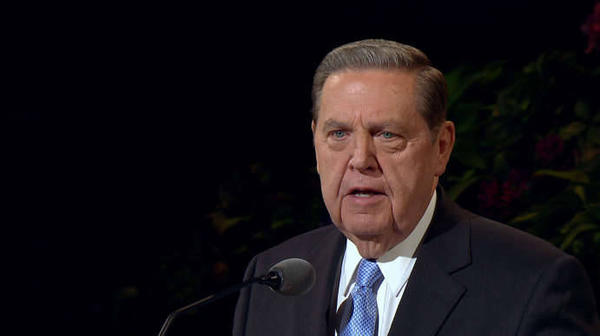
Statements on Heavenly Mother
I appreciated the loving tribute Elder Holland just gave to all mothers, and in particular to our Heavenly Mother. In the wake of that talk, I’m reposting[1] some of the quotes on Heavenly Mother collected in Paulsen’s & Pulido’s BYU Studies article, “A Mother There.” [2] It’s a valuable resource to actually have before us a sampling of what…
-
Reading Nephi – 1:7-17
Joseph Smith remarked on visions that they are something that overcomes the visionary—that is, they’re physically exhausting. After the famous vision he shared with Sidney Rigdon (D&C 76), Sidney was apparently quite overcome, and Joseph quipped, “He’s not as used to this as I am” (or something to that effect, a la Truman Madsen). Thus…
-
Reading Nephi – 1:1-6
‘I, Nephi’ begins his record in a remarkable manner, and I’m tempted to write long-windedly exploring the labyrinth of the first verse. I’m grateful that he acknowledges goodly parents and not just a goodly father. Some have certainly had only goodly fathers and not goodly mothers (Disney loves this scenario), but as written, I see…
-
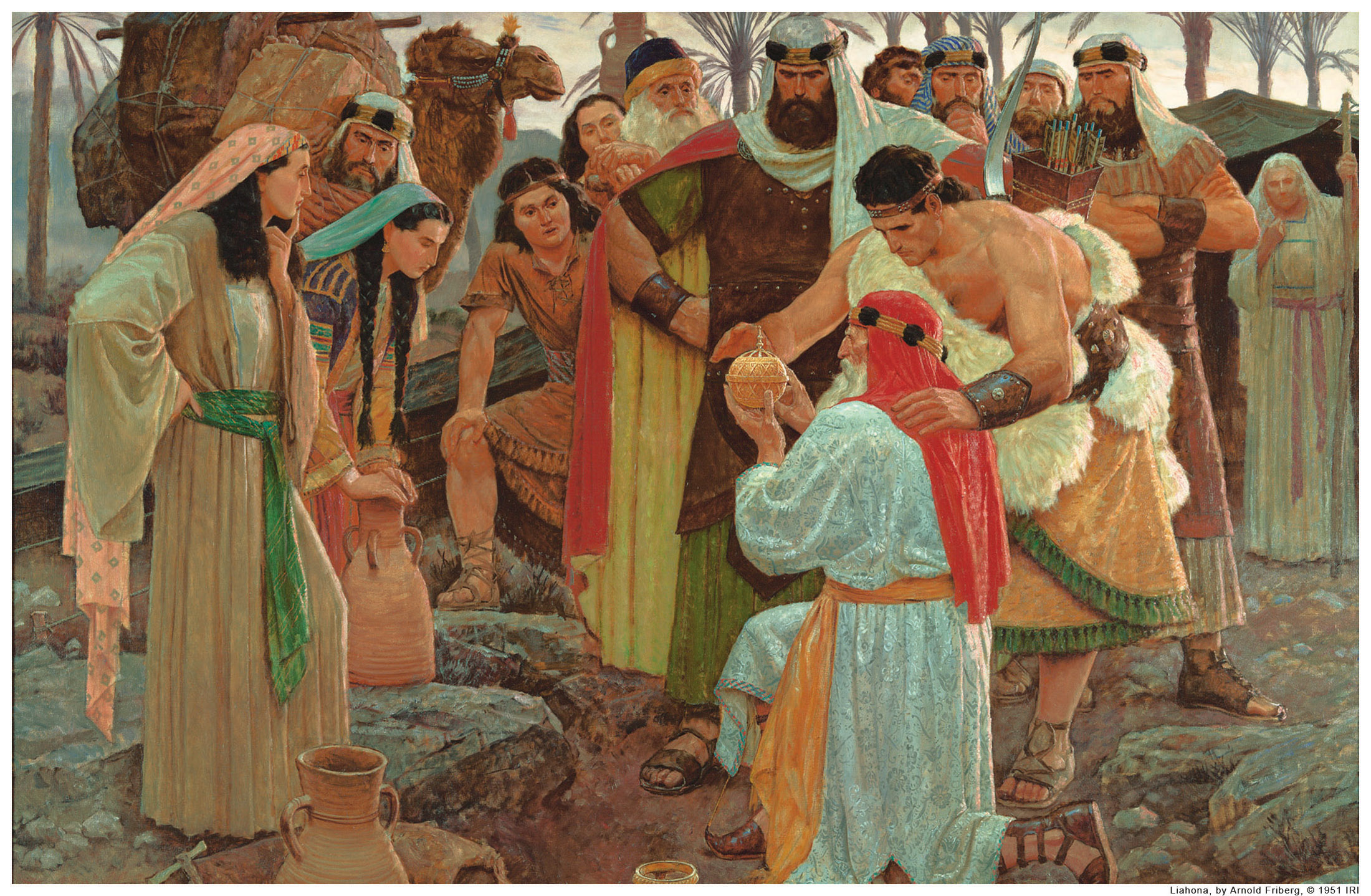
Reading Nephi – Headnote
What would I write now if I were to give an account of some stretch of nine formative years of my life in a paragraph, serving as the key markers of a short bio I’d then write
-
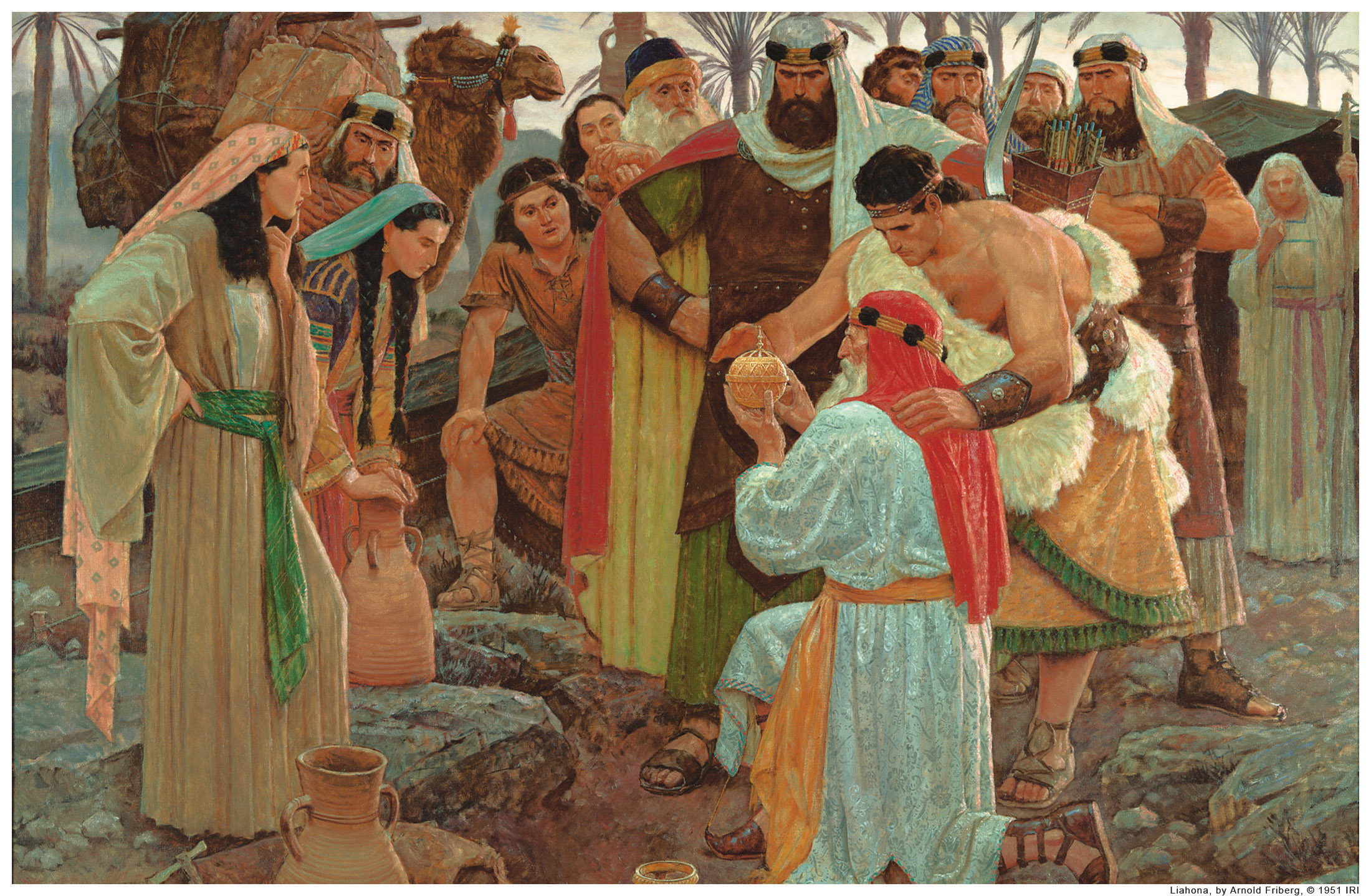
-

Seerstones and the Sacred
I’ll be honest. Seerstones spark a fire in my bones, a connection to an earlier, earthier, more tangible, and sacral-infused Mormonism. And that’s a Mormonism I need in my life right now.
-
My morning with McBaine and Wiman
As happens every now and then, I had a furious, fortuitous conjoining that so filled the boughs with fruit that they now creak and threaten to break. And language—especially quick language—isn’t likely to succeed in conveying the experience. What follows is a quick, momentary set of notes. But I don’t want to let it pass…
-

Women and the Church – Constructively Engaging the Arguments
I’m going to describe the dialectical geography as I see it, in order to try and help readers at T&S do better at constructively engaging the arguments in what I consider to be an issue of absolutely fundamental importance.
-

Faithful priesthood narratives?
some of those who speak in opposition to women’s ecclesiastical enfranchisement do so because they can’t imagine what a faithful, coherent narrative of our dispensation could possibly look like if women’s priesthood role were restored and developed or if they did receive the Melchizedek Priesthood
-
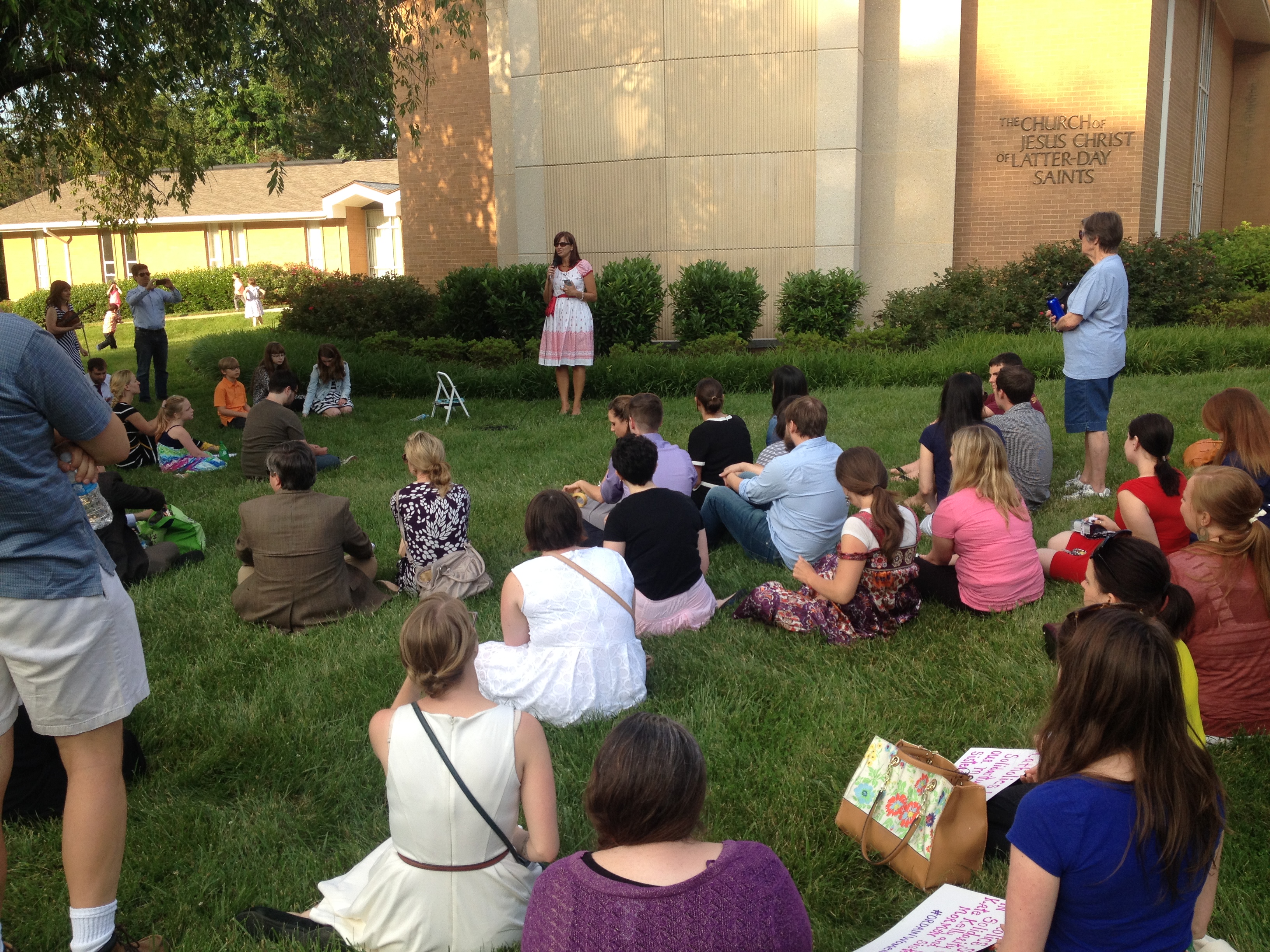
Knocking With My Sisters
One of my most recent posts was an attempt to honestly explore (or at least ask) the question: “How do faithful members collectively petition our prophets to petition the heavens?” The scriptures and the early days of our church are replete with faith-inspiring examples. How do we do it now that we’re millions strong? The answer…
-
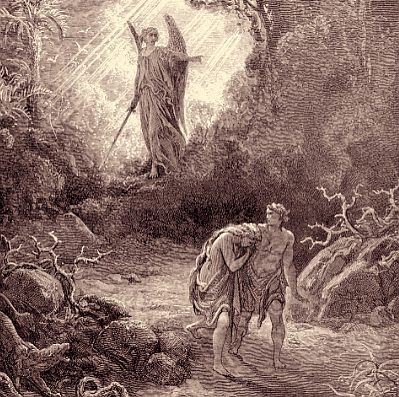
Mourning with those that mourn
Job 1: 20 Then Job arose, and rent his mantle, and shaved his head, and fell down upon the ground, and worshipped, 21 And said, Naked came I out of my mother’s womb, and naked shall I return thither: the Lord gave, and the Lord hath taken away; blessed be the name of the Lord. 22 In all this Job sinned not, nor charged God foolishly. Job 2: 11 ¶Now when Job’s three friends heard…
-
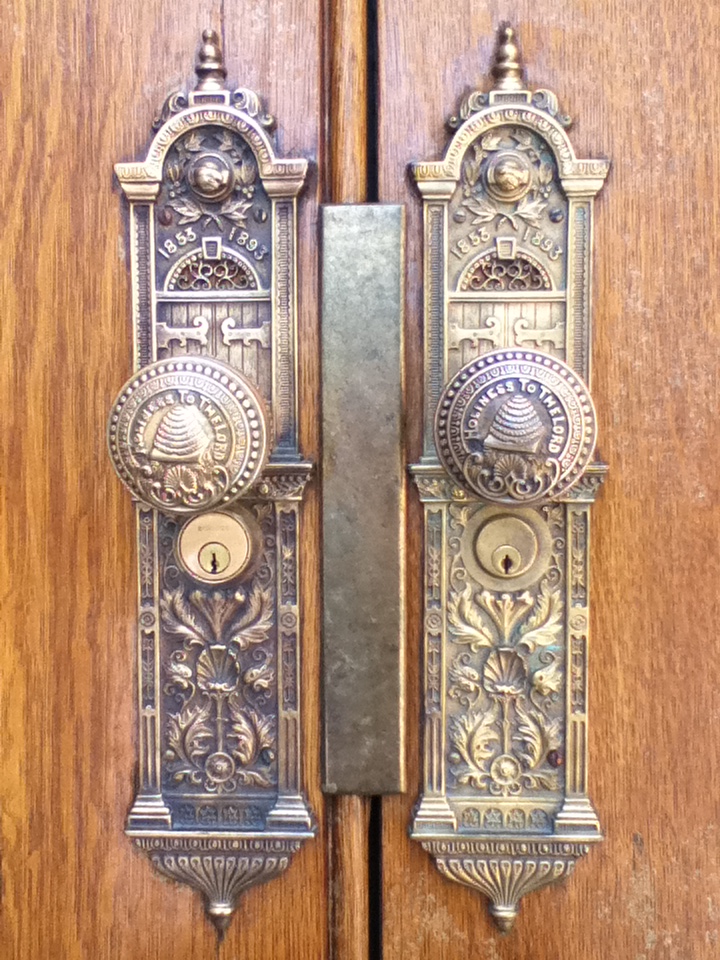
Where is the door? How do WE knock?
One of the gems of my mission was the opportunity to spend an evening with a Bishop from the RLDS (now Community of Christ) Church
